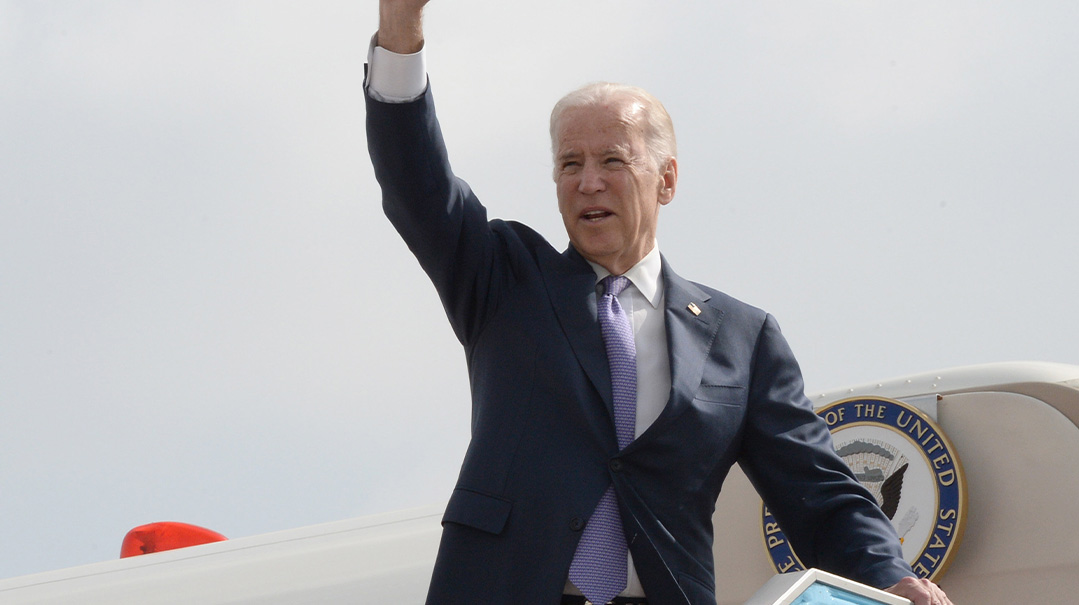Should Biden Have Stayed Home?

The Biden-Lapid meeting looks more like an ill-timed and ill-advised visit, with risks — to both countries — that outweigh the rewards

W
hen Richard Nixon became the first US president to visit Israel in June 1974, he and Prime Minister Yitzhak Rabin initiated talks on a provisional agreement for America to provide fuel to Israel’s peaceful nuclear energy program.
Nearly 50 years later, President Joe Biden, on the eve of his meeting with Israel’s provisional prime minister Yair Lapid, Biden, in a Washington Post op-ed, stressed the urgency of restoring the nuclear deal with Iran, even though — to paraphrase a famous Nixon expression — it should be “perfectly clear” that Iran’s nuclear program is a regional menace.
The political irony doesn’t end there.
When Nixon landed in Israel, he was standing on his last political legs. Each new day produced another damaging revelation linking him directly to the Watergate scandal. Nixon resigned from office in disgrace two months later. Israel, at the time, was the epitome of political stability. Rabin’s “Alignment” party held 51 Knesset seats, enjoyed a comfortable parliamentary majority, and lasted in power for three years.
No one expects Biden to be out of office two months after leaving Israel, but more Democrats are murmuring about finding a new presidential candidate for 2024. New York Times chief White House correspondent Peter Baker echoed this sentiment over the weekend, noting that Biden’s “age has increasingly become an uncomfortable issue for him, his team, and his party.”
To his credit, Biden scheduled Israel as his first stop, and Saudi Arabia second, as opposed to Donald Trump’s 2017 visit, when he touched down in Saudi Arabia before Israel. Biden’s strategy is to make a symbolic gesture with a direct flight from Israel to Saudi Arabia, but unless it’s followed up by an arrangement that allows outbound Israeli planes to fly over Saudi airspace, Biden’s standalone flight will be meaningless.
Biden’s first scheduled stop — to an IDF Iron Dome base — exemplifies Israeli dependence on US military aid and political support for a posture that applauds Israel for absorbing enemy rocket attacks instead of taking the battle to the enemy.
Lapid’s unilateral concession to allow Biden to visit Palestinian institutions in East Jerusalem — ground that no visiting US president has ever tread on — opens the way for US legitimization of Palestinian territorial claims in Jerusalem and an increase in American aid to the incorrigibly corrupt Palestinian Authority. Lapid’s very legitimacy is questionable, considering how he inherited the post from his failed predecessor, Naftali Bennett, who himself won only seven seats in the 2021 election. Lapid is in no position to break new ground or make concessions that will be difficult to walk back.
Despite all of the photo-ops and expressions of goodwill, Biden will probably leave Israel with no agreement in terms of Iran, new countries joining the Abraham Accords, or advancing the moribund peace process.
Will Biden succeed in prying more oil production from Saudi Arabia to push down global prices in the fight against inflation? Does Saudi Arabia even have the capacity to do so? Is Biden’s goal to forge a regional defense alliance against Iran, or to inform the Saudis in person that the US will soon sign with Iran because any deal is better than no deal? If Biden fails to satisfy the Saudis, how will that reflect on America’s flagging standing in the Middle East?
I write this on deadline, 72 hours before Biden lands at Ben-Gurion Airport. By the time many of you read this, Biden should be safely on his way back to the White House. I’m willing to be pleasantly surprised by the outcome, but considering the political paralysis and polarization in both the US and Israel, and the weakness of their leaders, the Biden-Lapid meeting looks more like an ill-timed and ill-advised visit, with risks — to both countries — that outweigh the rewards.
(Originally featured in Mishpacha, Issue 919)
Oops! We could not locate your form.







